


Sign-up for {N}power to get exclusive discounts, newsletters, members-only features, and more!

90% percent of Americans aren’t getting enough of this essential nutrient
There’s a little secret health enthusiasts would like to let you in on: Choline is an essential nutrient that more than 90% of Americans aren’t getting enough of, and this overlooked, under-consumed nutrient is crucial for head-to-toe health at every stage of life. Neither a vitamin nor a mineral, but often grouped with the B vitamins, choline is a nutrient that is critical for the liver, brain, and muscles to function; it is required for brain development and growth, cellular health, and digestive health; and it even promotes exercise performance. With more people eating diets devoid of choline, choline supplements can help bridge the gap to provide adequate amounts, taking your health to soaring heights!

Choline is a relatively new essential nutrient, having only been recognized in 1998 by the National Academy of Medicine,1 but since its discovery, it’s proving to be a critical component of health—and it’s largely missing from our diets.2 While it’s found in a variety of foods, including egg yolks, beef and beef liver, chicken, fish, and soybeans, recent analyses show that “large portions of the population, i.e., approximately 90% of Americans, including most pregnant and lactating women, are well below the Adequate Intake (AI) for choline.”3 4 Additionally, given that choline is found in animal-derived foods, many vegetarians and vegans are at risk for inadequacy, making supplementation even more crucial.5 Research has also revealed that meeting the daily intake requirements for choline is very difficult when eggs are excluded from the diet.6
The majority of choline in the body is found in the form of phospholipids— primarily phosphatidylcholine (PC) and sphingomyelin—critical structural components that form cell membranes. Choline plays a vital role in numerous cellular processes, including building healthy cell membranes, facilitating cell signaling, and supporting healthy DNA synthesis and gene expression.7 8 Choline is also a precursor to the neurotransmitter acetylcholine, which plays a crucial role in learning, memory, and mood, as well as a healthy nervous system.9 10 Choline is available as a standalone dietary supplement, can be found in B-complex vitamins, and in some multivitamin/mineral products as well.11
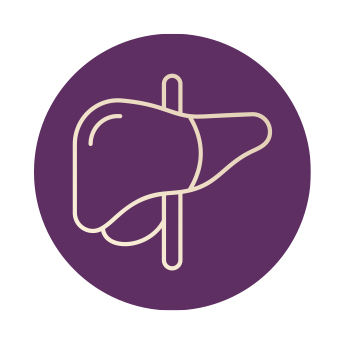
Choline has a direct effect on liver health—phosphatidylcholine is critical for breaking down and removing fat and cholesterol from the liver,12 and when choline intake is insufficient, fat and cholesterol can accumulate, leading to liver dysfunction and non-alcoholic fatty liver disease (NAFLD), a growing epidemic affecting approximately 25 percent of Americans. NAFLD can lead to liver fibrosis, severe liver damage, and even liver failure.13 14
In a study evaluating the dietary requirements for choline in healthy men and women, researchers found that after just 42 days of a choline-deficient diet, 77 percent of men, 80 percent of postmenopausal, and 44 percent of premenopausal women developed fatty liver and/or muscle damage. Moreover, several men developed these signs while still consuming the recommended 550 mg of daily choline intake, with researchers concluding that “a daily intake at the current AI was not sufficient to prevent organ dysfunction in 19 of the subjects.”15
Another study analyzed whether there is an association between dietary choline intake and NAFLD in American adults. Subjects were categorized into three categories of daily choline intake levels: inadequate (<214 mg/day), average (214–411 mg/day), and optimal (>411 mg/day). Compared to those with inadequate intake, subjects with average choline intake had a 17 percent lower risk of NAFLD, while those with optimal intake had a 30 percent lower risk of NAFLD. The study summarized, “…higher dietary choline was associated with a lower risk of NAFLD in American adults […].”16 The takeaway? Optimize your choline intake for a healthy liver.
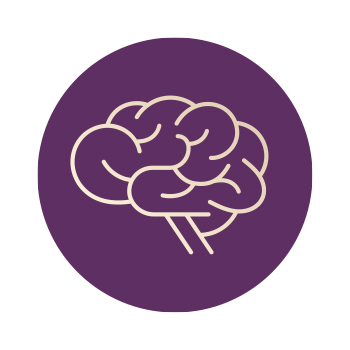
When it comes to a healthy brain, the bottom line is this: your brain needs choline. . From conception to the golden years, your brain requires choline for adequate development and to function at its best.17 During pregnancy and postnatal periods, when large amounts of choline are transferred from mother to baby either through the placenta or breast milk, the demand for choline is extremely high. Similar to folic acid’s protective fetal-development benefits, research suggests that sufficient choline intake just before and during early pregnancy may play a key role in reducing the risk of neural tube defects (NTDs), which affect the brain and spinal cord of the fetus. In a study investigating choline and NTDs, women with the highest dietary choline intake versus the lowest intake around conception had a 51 percent lower risk of an NTD-affected pregnancy.18
Another randomized, double-blind, placebo-controlled study examined the effects of maternal choline supplementation during pregnancy on infant cognition. In the study, pregnant women in their third trimester consumed either 480 mg or 930 mg of choline per day until delivery. All participants followed a standard diet providing 380 mg of choline daily, with additional choline supplementation (either 100 mg or 550 mg) to reach their target intake. Results showed that the infants whose mothers consumed the higher amount of choline had significantly faster reaction times and information-processing speeds when tested between four and 13 months of age.19
A follow-up 2021 study found that the higher choline intake (930 mg/day) during pregnancy also led to greater cognitive benefits in early childhood. At age seven, the children whose mothers consumed 930 mg/day demonstrated superior sustained attention compared to those in the 480 mg/day group, highlighting the long-term impact of prenatal choline supplementation on cognitive development in children.20
Choline also benefits the adolescent brain. When healthy adolescent males (aged 13–18) supplemented with either 250 mg or 500 mg citicoline (a form of choline specifically used for brain health) for four weeks, it improved their attention, psychomotor speed, and reduce impulsivity compared to a placebo.21
In adulthood, choline is deemed effective at improving memory. In a randomized, double-blind, placebo-controlled study of male and female volunteers 50 to 85 years old, participants took either a placebo or 1,000 mg/day of citicoline for three months in the initial part of the study. In the crossover portion of the study, subjects took both placebo and citicoline (2,000 mg/day) for two months. Results showed that citicoline therapy improved verbal memory functioning in older individuals with relatively inefficient memories. The study concluded, “Citicoline may prove effective in treating age-related cognitive decline that may be the precursor of dementia.”22
Alzheimer’s disease (AD), the most common cause of dementia, currently affects six million U.S. adults and is projected to afflict 14 million Americans by 2050.23 The neuropathologies in AD include amyloid-beta plaques and neurofibrillary tangles forming in the brain, and neuronal loss, all of which are associated with cognitive impairment. Could a lack of choline in the diet be a contributing factor to this debilitating disease, and could supplementation be a preventive approach? Compelling research points to yes.24
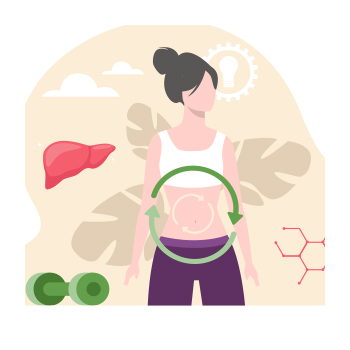
Choline is a precursor to the neurotransmitter acetylcholine, and a loss of choline receptors and deficiency “of the cholinergic system” in the brain has been shown to contribute to AD.25 26 Additionally, when the brain’s resident immune cells (so-called “housekeeping cells”), called microglia, which rid the brain of deleterious debris, are over-activated, brain inflammation, neuronal death, and neurodegeneration occur.27 Studies show that “a lifelong regimen of choline supplementation protects the brain from AD both by blocking the production of amyloid-beta plaques and by reducing the activation of microglia.” When AD mice were given a lifelong regimen of choline (4.5 times the RDI), cognitive deficits improved and activated microglia were reduced.28
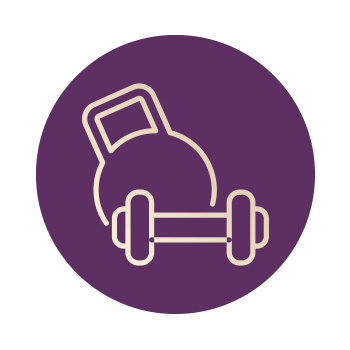
As a precursor to acetylcholine, which signals muscle fibers to contract, choline plays an important role in muscle function. It also supports the structure and function of muscle cell membranes. As highlighted by a small study examining how a choline-deficient diet could impair muscle health, men experienced a significant rise in creatine kinase (CK) levels—an indicator of muscle breakdown and wasting—after just six to 42 days of the altered diet. Upon reintroducing choline into the diet, CK levels returned to normal.29
In another study, researchers conducted a randomized controlled trial investigating the impact of dietary choline intake on strength and lean mass in healthy older adults 60–69 years old. After 12 weeks of resistance exercise training (RET), results showed that the low-choline group experienced significantly smaller strength improvements compared to the medium- and high-choline intake groups. The study concluded, “… data suggest that this population of older adults does not consume adequate choline and lower choline intake is negatively and independently associated with muscle responses to RET.”30
Choline also has the potential to be a powerful ally for fitness enthusiasts and athletes looking to increase performance. In a placebo-controlled study conducted on college-aged males, those taking 600 mg per day of alpha-GPC, another form of choline, at the end of just six days, had significantly greater mid-thigh pull peak force compared with those taking a placebo. The study concluded, “sport-performance coaches can consider adding alpha-GPC to the diet of speed and power athletes to enhance muscle performance.”31
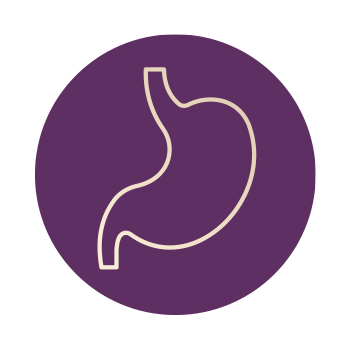
Choline, as phosphatidylcholine, is a key component of bile (an important digestive fluid), that breaks down fats and removes cholesterol from your liver, thereby supporting the digestive process and promoting gallbladder health.32 According to research, choline insufficiency has even been linked to increased intestinal permeability and inflammation, while animal studies have demonstrated that choline supplements increase intestinal-barrier function and lower inflammation.33 34 35 Choline intake can also influence the composition of the gut microbiota, with higher choline consumption being linked to an increase in beneficial bacteria.36



Sign-up for {N}power to get exclusive discounts, newsletters, members-only features, and more!